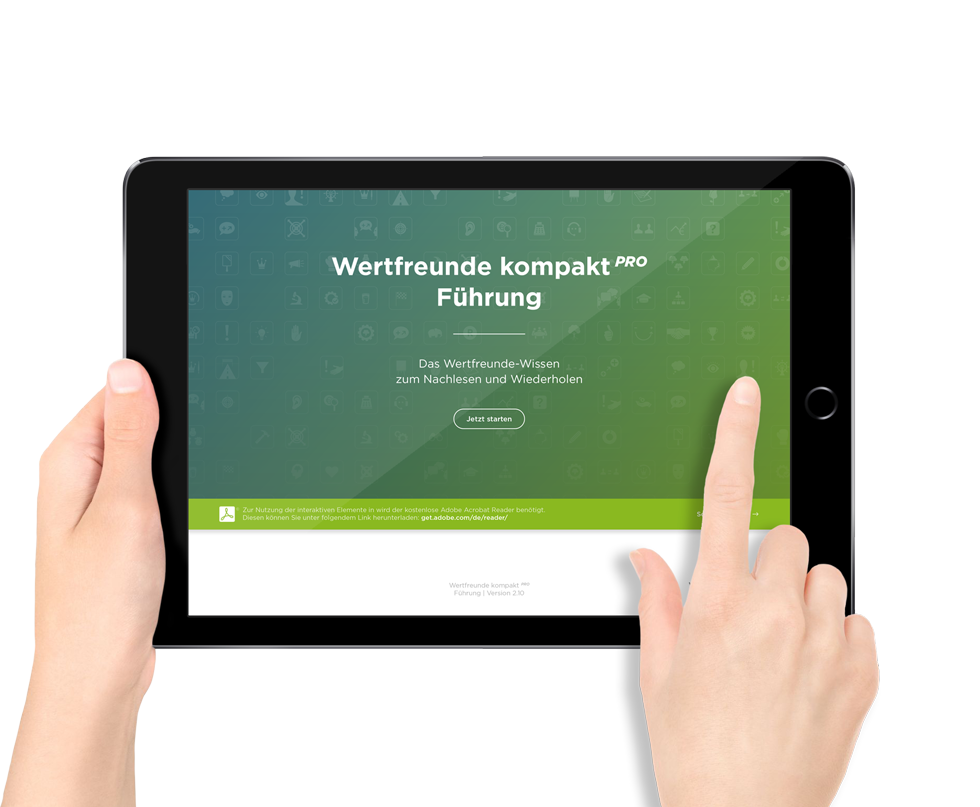Training
Unsere Trainings richten sich an Teilnehmer aus unterschiedlichsten Unternehmen und Branchen, die sich in den Bereichen Management und Vertrieb weiterentwickeln möchten.
Coaching
In unseren Coachings gehen wir mit den Teilnehmern auf individuelle Situationen und spezielle Thematiken ein, die innerhalb des (internen) Trainings nicht eruiert werden können.
Consulting
Im Consulting unterstützen wir Sie bei der Formulierung Ihres Unternehmensmodells, in dem neben der Vision und Mission auch die Struktur und die gewollte Kultur des Unternehmens festgelegt werden.
Das Wertfreunde-Unternehmensmodell
Die Grundlage für Ihren individuellen Erfolg
Das eigens von uns entwickelte Wertfreunde-Unternehmensmodell ist Grundlage vieler Trainingsinhalte und somit auch die Grundlage Ihres individuellen Erfolgs. Durch den schnell zu erlernenden Modellaufbau erschließen sich Ihnen unmittelbar unternehmensspezifische Zusammenhänge zwischen Strategie, Struktur und Unternehmenskultur.
Drei Fragen zu Ihrer STRATEGIE
- Wie eindeutig ist Ihre STRATEGIE formuliert?
- Wer außer Ihnen könnte die Ziele, die Sie mit dieser STRATEGIE verfolgen, erklären?
- Wie stellen sie sicher, dass alle sie verstanden haben?
Drei Fragen zu Ihrer STRUKTUR
- Welche Verantwortlichkeiten nehmen die unterschiedlichen Mitarbeiter im Unternehmen erfolgreich wahr, wenn Ihre STRATEGIE umgesetzt ist?
- Was würden Ihre Mitarbeiter antworten, wenn wir ihnen die gleiche Fragen bezogen auf die eigene Funktion stellen?
- Wie viele Ihrer Mitarbeiter suchen ihre Sicherheit in der STRUKTUR und wie veränderungsbereit sind sie?
Drei Fragen zu Ihrer KULTUR
- Welche KULTUR wünschen Sie sich?
- Wie stellen Sie sicher, dass diese KULTUR gelebt wird?
- Was sind die Konsequenzen, wenn sich einzelne nicht daran halten?
Offene Trainings
Durch Fragen führen
In unseren offenen Trainings begrüßen wir Teilnehmer aus unterschiedlichsten Unternehmen und Branchen, die sich in den Bereichen Führung, Kommunikation und Vertrieb weiterentwickeln möchten.
